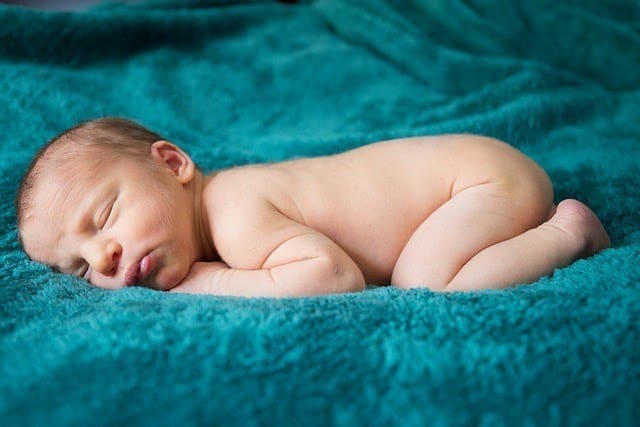Do babies sleep more when teething? This question has probably crossed your mind as a new parent. Moreover, you might notice that your baby’s sleeping patterns ay change drastically as he or she grows. Also, if you have twins or multiples, you might notice that their sleeping patterns and teething may not all happen at the same time. Let’s find out about it in this article.
How to know if your baby is teething?
Teething is characterized by swelling gums before the actual eruption of the tooth. Moreover, during this time it may cause discomfort to your baby. Teeth may begin to erupt anywhere between 4-12 months old. Teething is a developmental milestone of your baby which is similar to walking or dropping to one nap. Here are some of the common tell-tale signs that your baby is already teething:
- Gum inflammation localized in the area where the tooth is about to emerge
- Cheek becomes reddish on the side where the tooth is about to emerge
- Baby continuously rubs his or her ear
- Baby is easily agitated
- Persistent gnawing and chewing of non-food items
- Baby is becoming irritable when touched on the face, especially near the mouth
- Frequent sucking on bottom lip
Do Babies Sleep More When Teething?
Teething babies aren’t all the same. Some babies may feel plenty of discomfort while teething, while others may not feel any discomfort at all and life goes on as usual. However, parents may immediately get concerned about the health of their babies when they are teething.
In contrary to popular belief, babies do not sleep more when they are teething. Moreover, babies may actually sleep less due to the discomfort that they are feeling during teething. Besides, for babies, the few days before the tooth actually erupts is the most painful. Also, some babies may even experience slight fevers during teething which may further lead to more discomfort.
Teething may vary depending on your baby. However, it is very rare that babies just sleep through the pain. There are even times that babies may refuse their bottle during feeding due to teething pains. This is not much of a concern if it is only due to teething and your baby is not obviously losing a lot of weight. But, if other signs of health problems are present and your baby refuses to feed, you might want to seek medical attention to pinpoint what is wrong about your baby.
How to Ameliorate Teething Pains in Babies to Encourage them to Sleep More?
If babies are unable to sleep well when they are teething, you may help alleviate the discomfort by providing your baby with ice or a chilled teether. This may reduce discomfort and inflammation of the gum where the tooth is about to erupt. Moreover, allowing your baby to get enough rest is very important despite the teething.
Teething pains may affect your baby in more ways than one. Besides, depriving your baby of enough rest may have serious health consequences. However, despite this, it is not recommended to use anesthetic gum gels on teething babies. Ameliorating the pain is important in improving your baby’s sleep. Here are some ways that you can reduce discomfort caused by teething:
- Apply ice on the swollen gum
- Provide cold teethers for your baby
- Use chilled pacifiers to ease the teething pains
- Feed your baby with soft food while teething
- Position your baby properly prior to sleep to lessen teething pains
When do You Need to Clean Your Baby’s Teeth?
Once your baby’s tooth emerges, you are probably thinking about when to clean your baby’s teeth to prevent tooth decay and damage. Even though your baby might only be drinking milk and eating less, proper dental hygiene is important in keeping your baby’s teeth healthy.
Once the first tooth of your baby erupts, you may then clean it twice a day with a baby toothbrush and clean water. This is especially important before bedtime to prevent tooth decay caused by leftover food that may get stuck on teeth. You may use a tooth gel to clean your baby’s teeth when he or she reaches about 2 years of age.
To prevent tooth decay in your babies, you might want to refrain from giving foods that are high in sugar. Also, sweet drinks may be detrimental for your baby’s health so choose your baby’s food wisely and opt for healthy meals to maintain your baby’s health. Tooth decay is preventable and keep in mind that these temporary teeth are important for the first few years of your baby’s life.
How to Protect Your Baby’s Teeth from Damage?
Baby teeth are important for the first few years of your baby’s life and they may need it until their permanent teeth emerge. As parents, you might want to care for your baby’s teeth as much as possible. However, tooth decay is not the only problem that you have to prevent.
Once your baby already has teeth and you are using a baby bottle, do not allow your baby to sleep with the bottle nipple in his or her mouth. This may affect the growing tooth and may cause teeth to be deformed or pushed to the wrong place. Moreover, you may start using a cup for babies 6 months and up to protect your baby’s teeth.
Here’s a Recap, Do Babies Sleep More When Teething?
Do babies sleep more when teething? No, babies do not sleep more when teething and they may even be deprived of sleep when they are encountering too much discomfort while teething. When this happens, there are many ways you can ameliorate your baby’s teething pains to help ease your baby.










 Store
Store